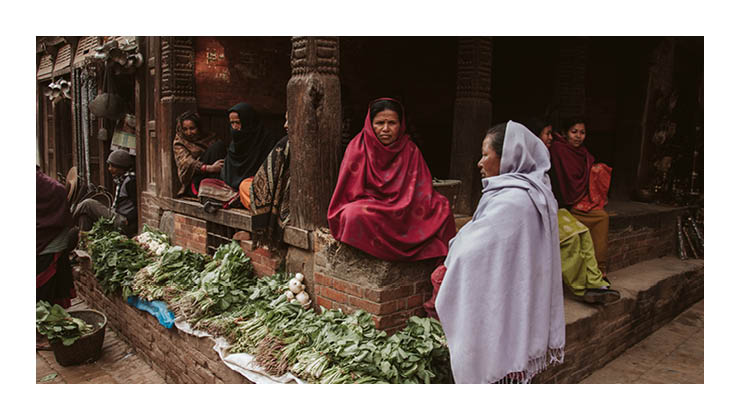“There’s a reason why extremists use violence: they cannot win a battle of ideas”
Malala Yousafzai said this at the memorial event for the murdered MP Jo Cox in June this year. It was a resonant comment, given that extremists had tried to kill her, at the age of 15, because of her advocacy for girls’ education in Pakistan. In the months since Jo Cox’s death, the “More in common” campaign has gathered strength. But the horror of her murder remains harsh and undimmed despite the efforts of so many to ensure that something positive comes out of it.
I thought of Malala Yousafzai’s words again this week as I read the Inter-Parliamentary Union’s (IPU) report ‘Sexism, harassment and violence against women parliamentarians’ released on 26 October. It makes for shocking reading.
It is shocking because of the extent of the violence – reported by 55 women parliamentarians of all ages, from 39 countries. More than 80% had been subjected to psychological violence. This includes humiliating sexual or sexist remarks, but also threats of death, rape, beatings or abduction, which were reported by 44.4%. As with women human rights defenders, those using violence frequently threaten women’s families in order to intimidate. An Asian parliamentarian is quoted as saying “Someone sent me information about my son – his age, the school he attends, his class etc – threatening to kidnap him.” Acts of physical violence had been experienced by 25% of the women parliamentarians who took part in the study.
According to the IPU report, violence is particularly aggravated when the parliamentarians are young or belong to a minority group. A European parliamentarian of African origin recounted how a billboard in her country, paid for by extreme-right groups, demanded that she be “whitened with bleach and burned alive”. No matter how many times I read that last sentence, I still cannot comprehend a reality in which someone thought up such an obscene message, organised and paid for it to be printed on a massive poster.
The IPU report finds that “the perpetrators of such acts of violence are not confined to a circle of political adversaries, as common in cases of political violence, or to the usual contingent of aggressive, dissatisfied or mentally disturbed citizens. Women parliamentarians can be harassed or attacked by male colleagues in their own parties. They can also be targets of violent community officials, religious leaders and members of their own families.” According to 60.5% of those surveyed “such acts are strongly motivated by the clear-cut positions the women had taken on particular issues… such as defending women’s rights or human rights in general.”
Though shocking, these levels of gender-based violence against women shouldn’t be surprising. The most frequently cited UN statistic is that one in three women worldwide are subjected to gender-based violence. In the UK, 44% of women have experienced physical or sexual violence since the age of 15. And it is well known that women who speak out – journalists, human rights defenders, environmental activists – are attacked in ways and at levels that far outstrips the violence and abuse experienced by their male counterparts.
Participation in democracy and political leadership are signs of human progress, of choosing to work through discussion and cooperation, not force. In its resolutions on women, peace and security, the UN Security Council has consistently called for more women to participate in peace-making during and after armed conflict, and in post-conflict reconstruction. Research has proven that women’s participation leads to better outcomes, and more durable peace processes. Where there are women in leadership, from national parliamentarians to grassroots local leaders, social well-being improves. The Sustainable Development Goals, 2015’s global political commitment to creating better societies while making the best efforts to avoid catastrophic climate change, promote women’s participation within all the goals, and include Goal 5, to “achieve gender equality and empower all women and girls”.
As well as making practical sense, equality of women and girls, in politics as well as society in general, is their legal right, their human right to equality in political and public life under international law.
The value of the IPU report is in showing why and how we need to achieve gender equality in our parliaments. It includes recommendations for parliaments and governments to take, to make sure women can participate in public life on a daily basis in safety and dignity.
Recommendations include:
- Finding out from women parliamentarians about the extent of the violence they experience, breaking the silence on this violence, and making it clear that such behaviour is intolerable;
- Enacting a specific law on violence and harassment targeting women in public life;
- Ensuring that harassment and violence can be dealt with by police and prosecutors where these acts constitute crimes; and all forms of harassment should be dealt with by parliamentary mechanisms and policies, and codes of conduct;
- Maintaining security in parliament, in parliamentary premises and constituency offices;
- Promoting solidarity between women parliamentarians and also encouraging male parliamentarians to take a stand against sexist harassment and violence.
However, for more women to participate in parliaments, the change needs to come across society as a whole. This needs systemic change to deal with the “chilling effect” of abuse of women in public life. Changing cultures requires ensuring education for all children on respect and equality, and engaging with the media to improve reporting on issues affecting women. That kind of systemic change could be achieved in the UK if the government ratified the Istanbul Convention (the Council of Europe Convention on preventing and combating violence against women and domestic violence). The next step is a vote on a Private Member’s Bill on 16 December, which I call on all Members of Parliament to support.
Communication technology brings unstoppable creativity in how we engage with each other, and we need to evolve our manners and customs of expressing ourselves with that: but surely this is an issue of basic self-respect? The rules for me in writing this blog require courteous expression, not abuse: personal attacks are not logical or illuminating. As we have seen, in the US presidential elections, the use of insult, harassment, discrimination and violence is just as wrong in public life as well as in private life.
Which is why Malala Yousafzai’s words are so true: “There’s a reason why extremists use violence: they cannot win a battle of ideas.”
On 2 November, Jo Cox’s successor as Member of Parliament for Batley and Spen, Tracy Brabin, made her maiden speech in parliament. She described Jo Cox’s killing as “the darkest of circumstances… an attack on a woman, a family, and a community, it was an assault on the principles and basis of our democracy.” But she also said that her constituency would “not be defined by the one person who took from us, but by the many who give.”
It is now up to the authorities in all states to take heed of the IPU report, to investigate and address the experiences of women parliamentarians so that they can undertake their role and service as leaders in safety and dignity.
The views, thoughts and opinions expressed in this blog post are those of the author(s) only, and do not reflect LSE’s or those of the LSE Centre for Women, Peace and Security.
Image credit: Claudio Schwarz | @purzlbaum on Unsplash





